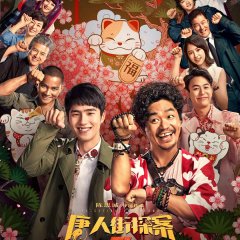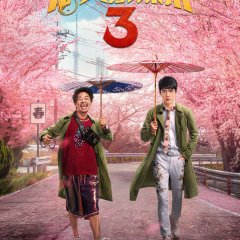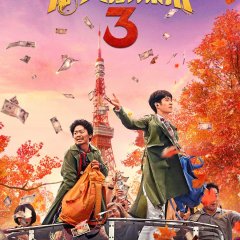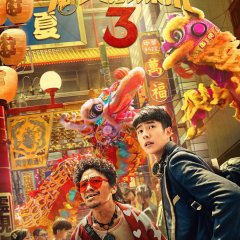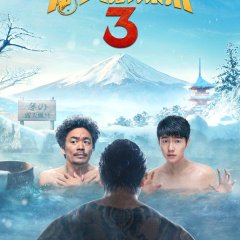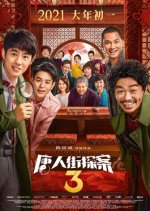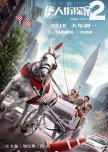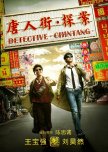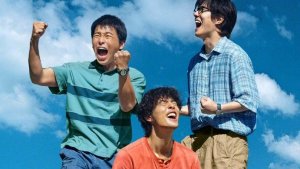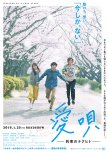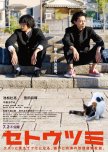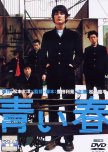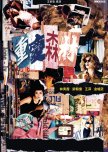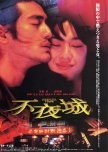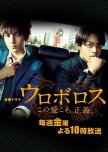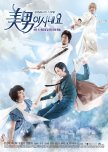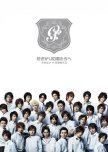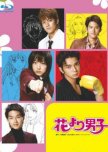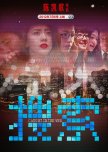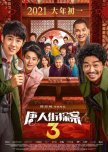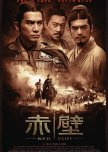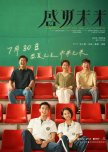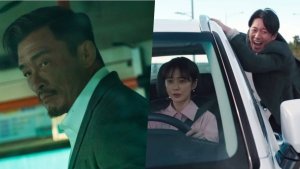 Choo Sung Hoon to Make a Special Appearance in "Family: The Unbreakable Bond"
Choo Sung Hoon to Make a Special Appearance in "Family: The Unbreakable Bond" - Français
- English
- magyar / magyar nyelv
- dansk
- Titre original: 唐人街探案3
- Aussi connu sous le nom de: Tang Ren Jie Tan An 3
- Scénariste et Réalisateur: Chen Si Cheng
- Genres: Action, Mystère, Comédie, Crime
Distribution et équipes
- Wang Bao QiangTang RenRôle principal
- Turbo LiuQin FengRôle principal
- Tsumabuki SatoshiNoda HiroshiRôle principal
- Jaa TonyJack JaaRôle Secondaire
- Nagasawa MasamiKobayashi AnnaRôle Secondaire
- Asano TadanobuTanaka NaoRôle Secondaire
Critiques

The best chapter so far!
The third and (at least for now) last installment of the "Detective Chinatown" franchise is, as far as I'm concerned, by far the best. The script this time is spotless: the mystery part is at the same time extremely well done and really gripping; the comedy part is funny without being too silly like in the previous chapter; last but not least, the action scenes are very entertaining (just as I expected, the Tokyo setting helped a lot there). The cast did a marvelous job and also benefited from the presence of some very good actors from Japan (whereas the American supporting cast seen in the previous movie had been mostly sub par, imho). Last but certainly not least, the production value is as high as they come. Can't wait for the next chapter (if there'll be one as the final scenes might suggest)! Oh, talking about the ending - what a beautiful message! It's not often that I feel like giving a perfect 10 to an action movie, but this one deserves it! ^___^Cet avis était-il utile?

Cette critique peut contenir des spoilers
a bowlful of energetic, multi-cultural, comedic and investigative entertainment
after experiencing 1+ year pandemic situation, this film is a huge refreshing welcome!a highly energetic and entertaining, multi-cultural investigative film. it is paced contextually, vibrant, colorful, and packed with consistently satisfying performances. this film has many manga-esque and/or comic book elements. there are also number of unpredictable moments, actions, and wacky dialogues, especially in the first half of the film. the film is also rich with slapstick humor. there are several jokes that might be more familiar amongst Asians in Asia. i don't think this film is suitable for all age group, some/many parents might deem this film not suitable for children because of the death scene with blood splattering in the air.
i like the way this film incorporates Japanese setting, language, culture, custom, and actors. i also like the involvement of Tony Jaa, but unfortunately most of the time he is speaking in English instead of Thai. the storyline and the plot are not complicated
it is amazing how well the extras blend in this film blend. i also enjoy the good to very good performances by many actors. Nagasawa Masami's performance at the court scene when she reveals her motive is enjoyable. this is also enhanced by the English music selection and the short flashbacks.
the cameras used for filming are of excellent quality. the lighting and lighting techniques are nicely done. there is a blend of outdoor and indoor background sets. the selections and arrangement of background sounds and music enhanced the film. there are unpredictable interjections with background music from old and popular Chinese, Cantonese and English songs in this film.
i feel that right after the main plot is revealed, the storyline digresses in much of the middle part of the film. part of the digression makes sense when audiences arrive at the ending scene which opens up for or gives a hint of a fourth sequel.
i am impressed with the first several minutes of this film for the super wacky airport scene, followed by the short chase scene, and the the Japanese bath house scene. just imagine the preparations, number of shots, casts prep, story board designs, directing, editing works, etc. that are involved. the best highlight of the show for me was the Sumo mini-scene (copycat Hulk bash Thor scene) and the Kendo mini-scene. it was pure laughing with tears moment for me.
the final scene with Michael Jackson's Heal The World is fitting, but an irony. this film is made before Covid-19 pandemic, aired during Covid-19 pandemic, has the word "Chinatown" in the title, while in USA there is an ongoing increase of cases of verbal/physical/ violence against Asians Americans in USA, some incidents occurring right in "Chinatown"
//additional//
- wished Tony Jaa had more Thai dialogues instead of English
- the director and/or screenwriter/s try to (mis)lead the audience into the line of thought that Qin Feng somehow pushed Akira down to his death. however, in a split second when that segment shifts, it is automatically obvious that there is a flawed logic of thinking or being led to think somehow Qin Feng might have actually pushed Akira.
- how did Qin Feng communicate with Akira Murata as he doesn't have that instant real-time translator earpiece? the only way this is possible is if we assume that, like Anne Kobayashi, Akira Murata also has a certain degree of comprehension of the spoken chinese.
- how did Akira bring AnneKobayashi's body down? how did Akira chain Kobayashi to the pipe? How did he get out after chaining Kobayashi to the pipe?
- is the universal earpiece translator worn by Tang Ren water proof? the CCTV footage early in the film shows the year as 2019. i would have to assume there is already a water proof universal earpiece translator available in the market in the film's reality.
- the logic presented by Hiroshi Noda to prove Qin Feng's innocence is redundant. a simple forensic investigation on the timer would reveal if Qin Feng's palm leaves a marking on the surface.
- logical flaw in Qin Feng's argument that Su Chaiwit grabs a broken glass to lightly stab himself and then use the broken glass to cut Watanabe's palm. why didn't the police run a forensic analysis on the broken piece of glass? it's obvious Su Chaiwit wasn't wearing a glove, neither was the piece of broken glass envelops by any material. Su Chaiwit's fingerprint/s would likely be on that piece of broken glass.
- logical flaw in Qin Feng's argument that Kobayashi hid the piece of broken arrow into Su Chaiwit's trouser pocket. the piece of broke glass is probaly longer than a palm's length and more than 5cm in width. if Kobayashi stealthily slide the broken glass, Su Chaiwit would have noticed it immediately. Su Chaiwit would also be able to feel the broke glass when he is moved from the crime scene and into the car. Su Chaiwit would also be able to feel the broken glass being removed out of his pocket trouser when he and Kobayashi are in the car.
- the court scene is big joke
- i might have missed something along the line, but what triggered Watanabe to suspect Kobayashi Anne is his daughter?
Cet avis était-il utile?











